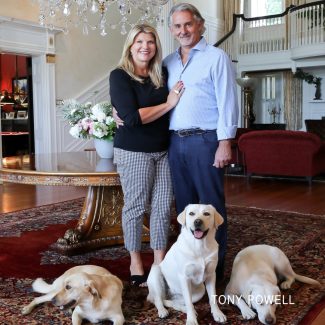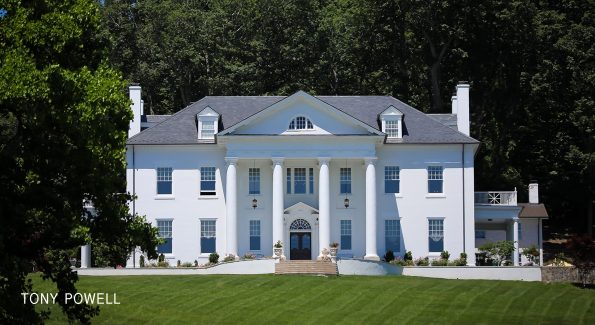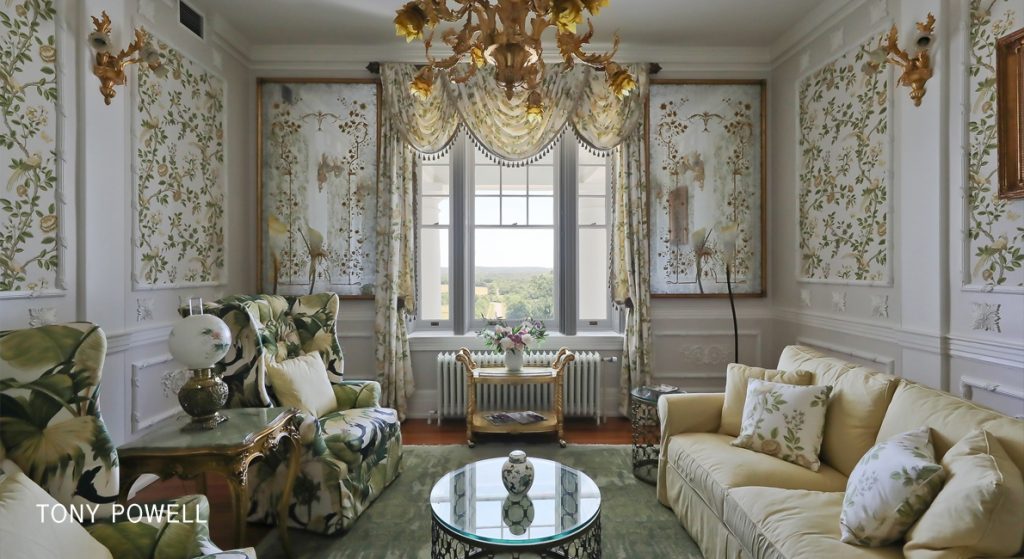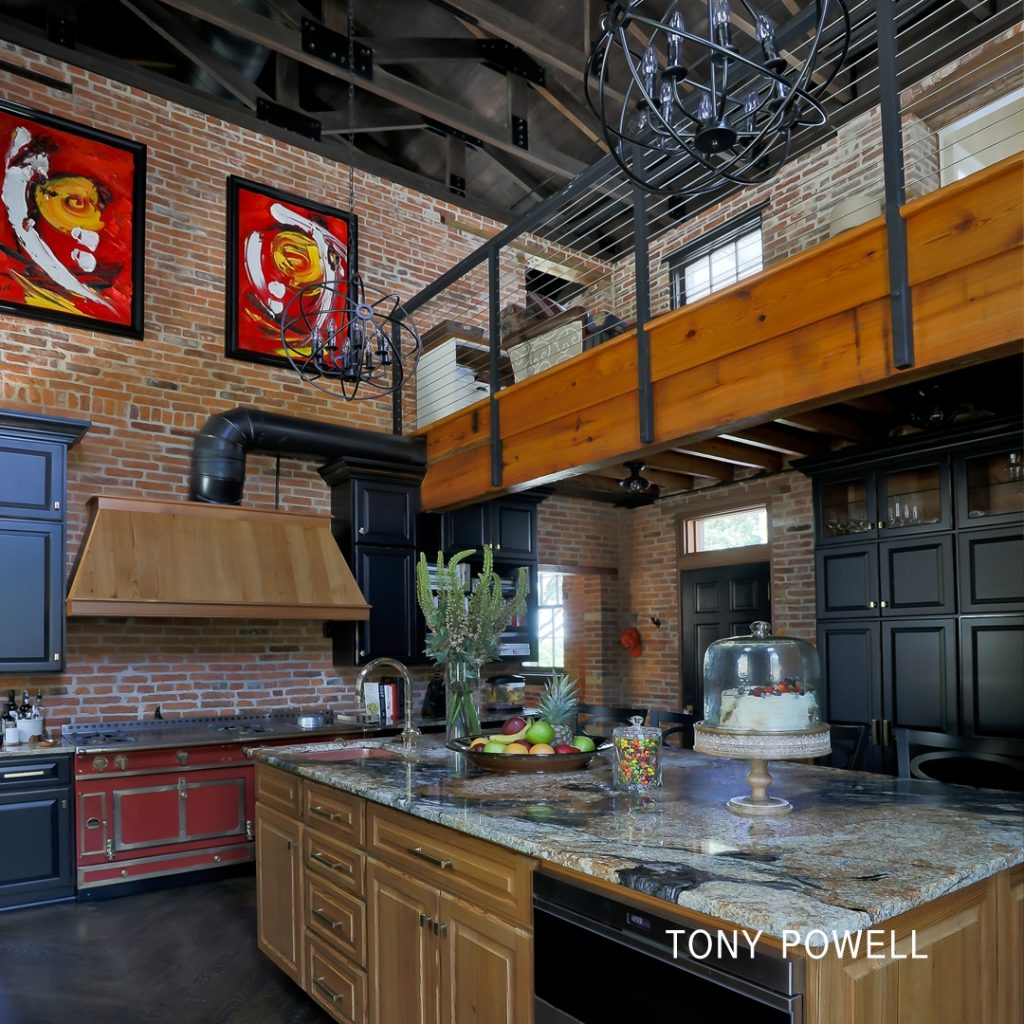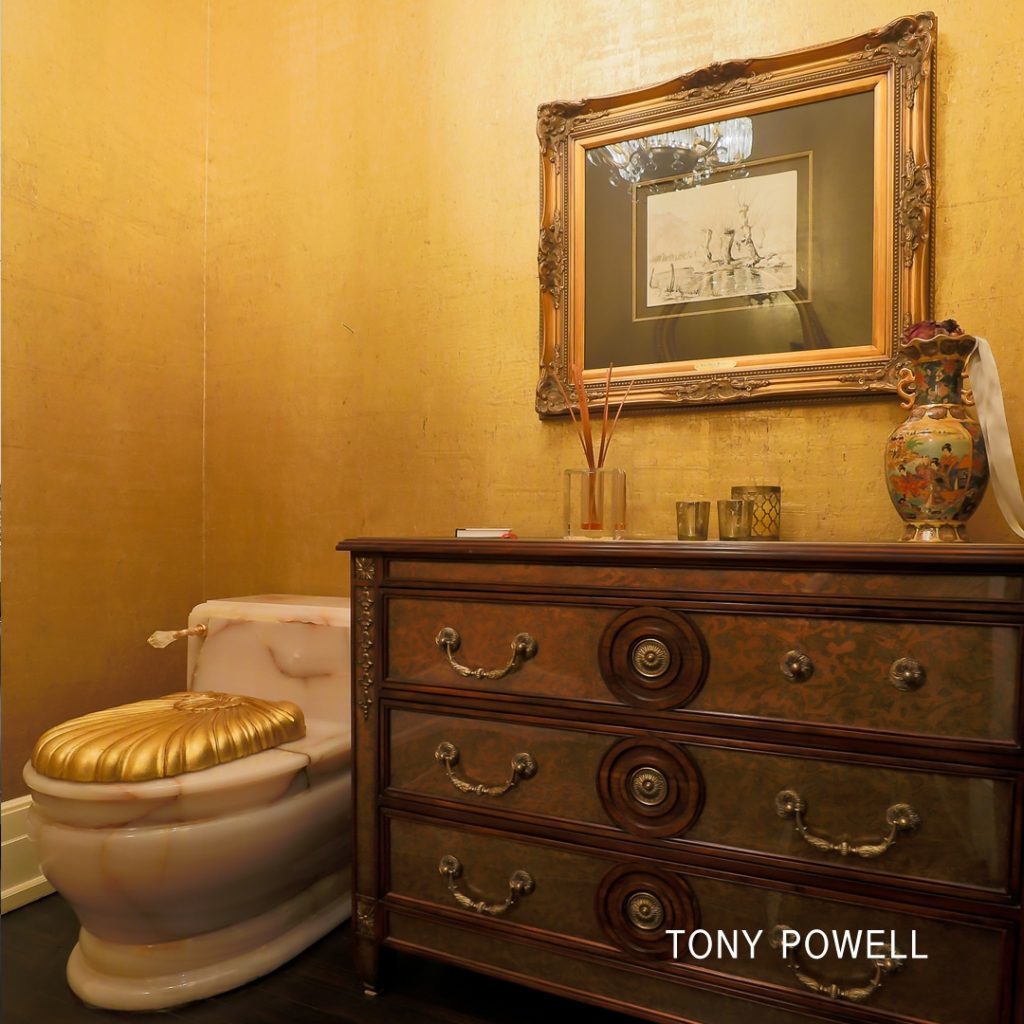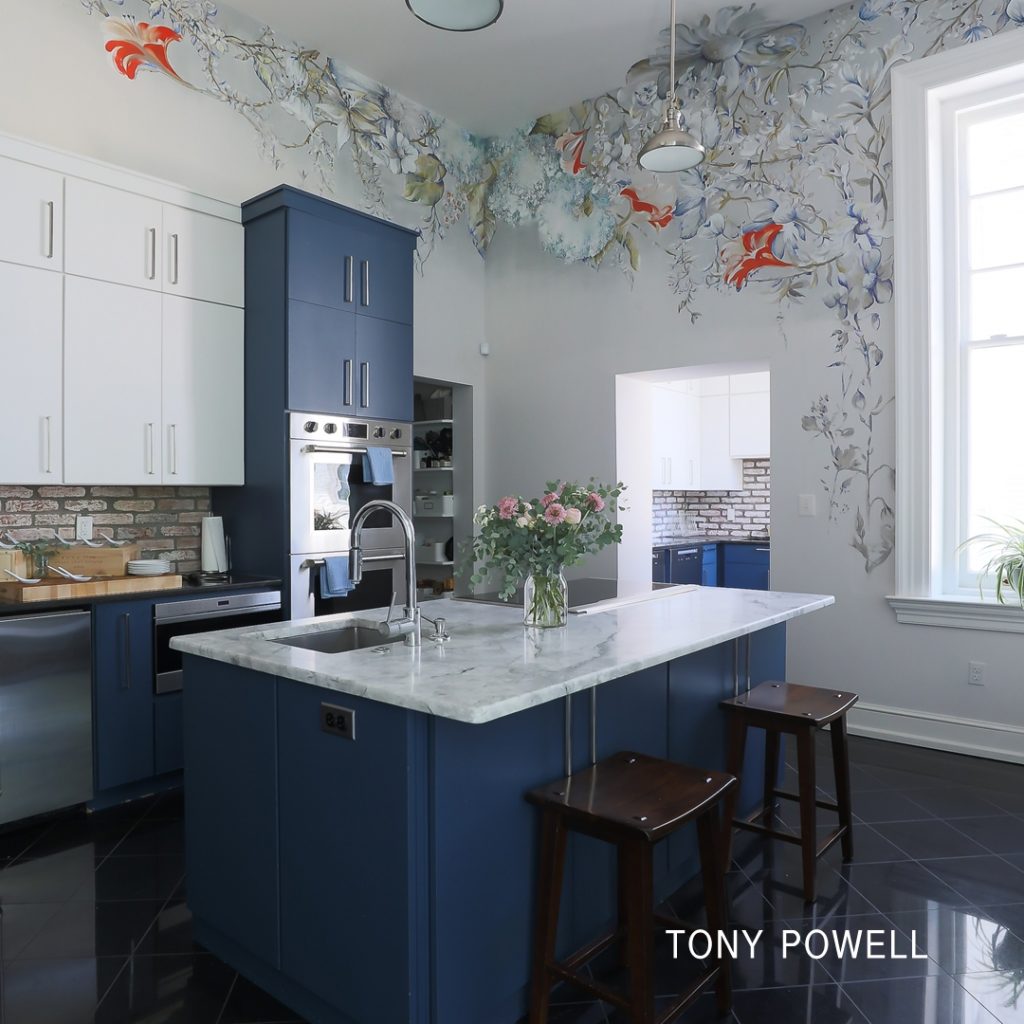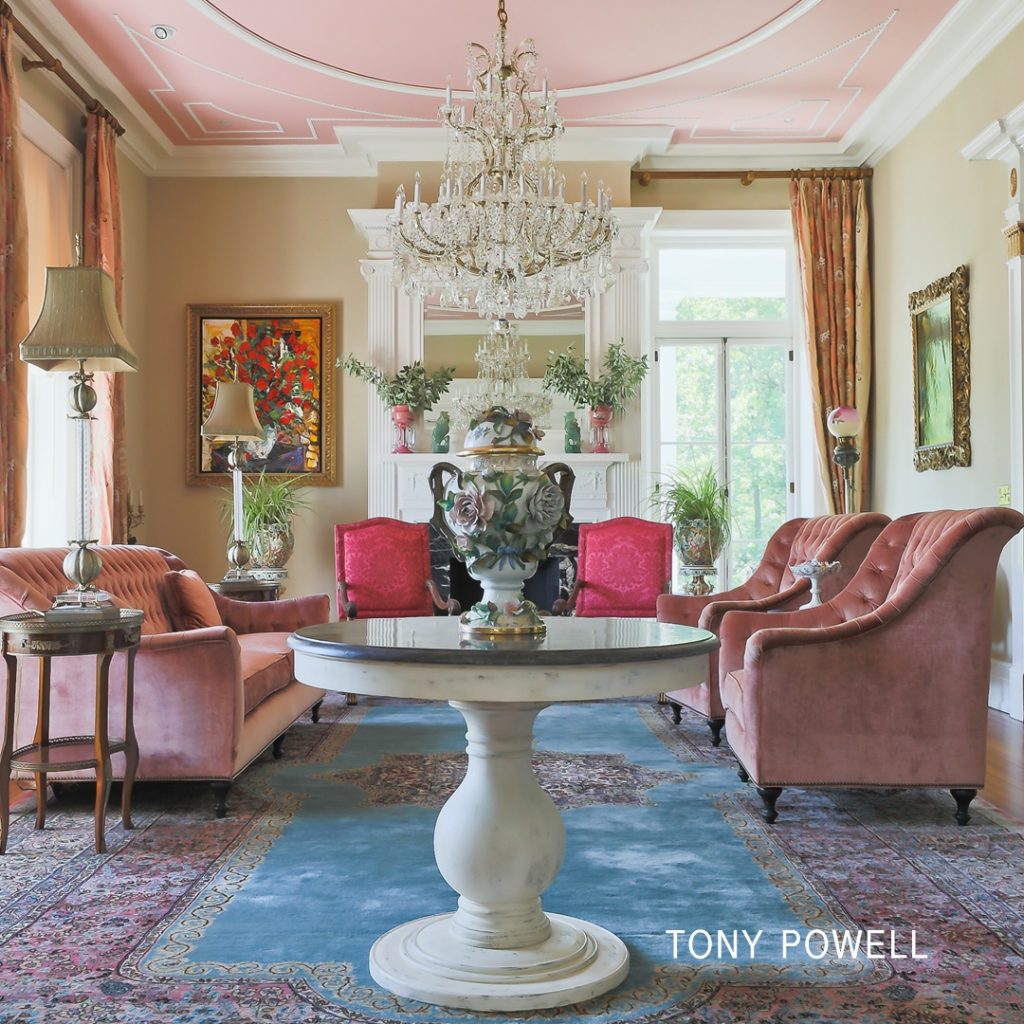Sharon Virts and Scott Miller embarked on a two year project to renovate an abandoned historic property in Leesburg, Va. only to find they were not alone on their journey.
The expression “if these walls could talk” takes on special meaning at Selma Estate in Leesburg, Va. Built in 1810 and reconstructed in 1902 after a fire, the property changed hands from former U.S. Senator (and General) Armistead Mason, a descendant of George Mason, to the Beverly family during the Civil War, to a successful grain importer and then to a banker over the years. Most recently, from the 1970s to 1999 it was used as a wedding venue before being sold to a foreign investor who never made good on his plans to turn the house into a business retreat center.
Before Sharon Virts and Scott Miller became fascinated with Selma’s rich history, it sat neglected for decades, used only recreationally by local teenagers for parties and séances. “The house was sad, but it had good karma,” Virt says, recalling her impression after walking through the decrepit structure for the first time.
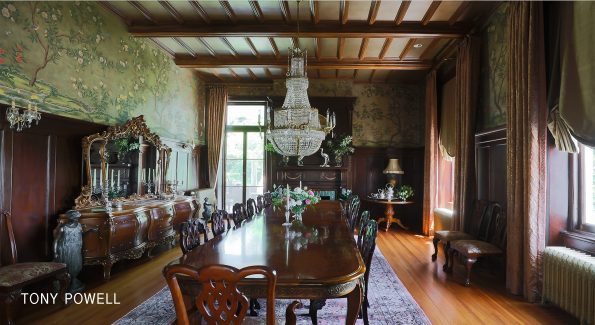
Dining room walls are covered in silk, hand painted watercolor Gracie paper custom-made to match the curtains. They hand-selected the fabric after visiting the Fortuny factory in Venice and designed the rest of the room around it. They snagged the 1900-made table with mahogany inlays for $700 at auction.
Sprawling over 50 acres, the 19,000-square-foot white house stands in stark contrast to its surrounding bucolic landscape. Drivers who catch a glimpse of the stately mansion often stop short to stare at its powerful hilltop presence. The name Selma comes from translations of James McPherson 16th century works (in Gaelic it means “highest place, beautiful view”). It had an impact on Virts, a Leesburg native, and Miller, her husband, when they happened across the Facebook photos depicting the rundown property’s dire state. “I couldn’t sleep for a few days, it just tore at me,” says Virts, who remembers admiring the house as a child. “Finally I said ‘we’re going to go out and buy this house.'”
The couple sprang into action, tracking down the owner in Germany and enlisting help from Loudoun County officials and friends to gently nudge the investor that his property was in violation of several codes, which could result in thousands of dollars worth of penalties if not properly settled. Needless to say, it didn’t take the two parties long to agree on sale terms in early 2016.
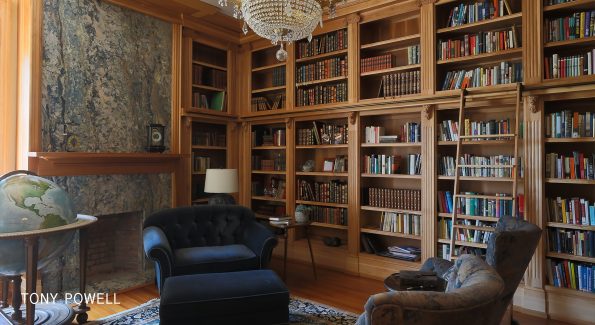
Miller spends most of his time in the library, which was once a screened-in porch. A massive slab of granite from East West Marble Company in Chantilly required special engineering for installation. It mimics the creek behind the house that runs into the Potomac River. The mantle was constructed from a pecan tree that fell at Mt. Vernon. Hidden behind the shelves is a secret door that leads to Virts’ office.
Steps one and two of the daunting revitalization endeavor was stabilizing the structure and establishing historical preservation, and got to work replacing outdated electrical and plumbing systems. All the while they were serving as their own general contractors, wrangling subcontractors and more than 60 construction workers on any given day.
Virts, a former business owner, proudly took on her new role as “project manager” while Miller utilized his engineering background to help with ductwork and the like. They point out countless structural details, all with their own stories of challenges that materialized throughout the course of the two-year, $5 million project.
With restoration efforts underway, Virts and Miller tackled the decor room by room, staying highly organized with binders filled with fabric swatches, magazine clippings, artist renderings and even the original architectural drawings, which they were able to track down in Richmond. “I’m not a designer, that’s not what I do,” Virts says, “but I know what looks good and feels good to us.
” Two interior designers whose strategies didn’t align with their vision were let go in the process. Approaching such a grand space required ample research and endless hours of treasure hunting for vintage pieces at auctions that would fit its traditional bones, including the acquisition of the home’s 42 chandeliers. “There is this nice balance of old and new,” Miller says of their ability to incorporate brightly colored modern art pieces from their previous residence.
Using old architectural blueprints as their guide, the couple stayed true to the original intention of each (i.e. smoking, billiard and drawing rooms) and anchored spaces with ideas inspired by their travels. From the backyard koi ponds mimicking the Inn at Little Washington to the poolhouse fresco influenced by the Roman bathes in Pompei, every facet of the house is extremely personal to the passionate duo.
“We’re going to get sued by all these people,” Miller jokes of their eclectic variety of muses.
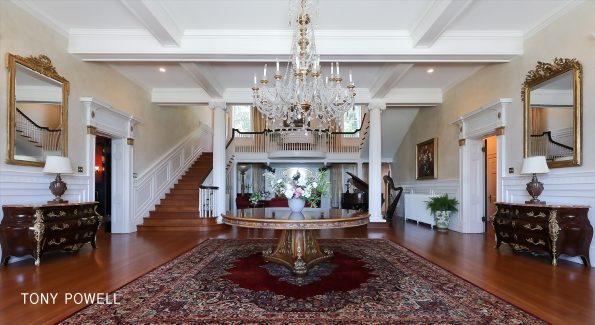
The entryway’s 14-foot ceilings make it an ideal hub for hosting. Flower arrangements are by House of Redman.
Early in the process, Virts and Miller began casually sharing Selma’s restoration experience online – originally to appease a built-in audience of 6,000 brides who wanted to keep up with their beloved wedding venue’s reincarnation. Eventually, through word of mouth, the undertaking took on a life of its own and now boasts more than 70,000 followers on its Selma Mansion Rebirth Facebook page. They hired a full time photographer to document updates and keep up with the enthusiasm of their loyal fandom.
The pair cut no corners to maintain the structure’s history and integrity, even if that meant seeking out specialized masons from Jamestown to repair brick from the oldest part of the house. They became so entrenched in the stories that Virts is publishing her first historical fiction novel, “Masque of Honor,” about a duel that left one of the property owners dead.
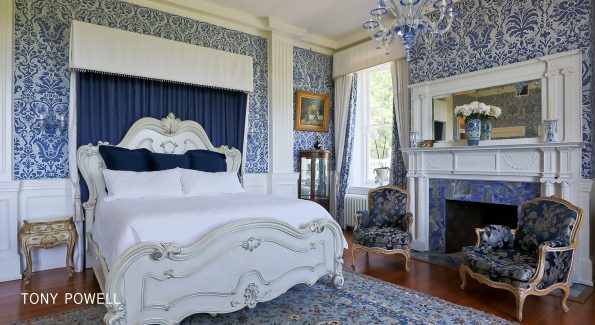
The blue-accented “bunny room” os one of the home’s seven bedrooms. It features vintage chairs and a Murano chandelier.
“It’s got a spirit, you can feel it,” Virts says of her house. She references supernatural experiences – doors mysteriously opening to let the dogs out, and on one occasion Virts feeling a hand on her shoulder. With the thoughtful care and energy they have put into the estate’s rebirth, it is no wonder that the lingering spirits are happy to have them. In an effort to share the treasured historic space with community, the philanthropic couple will continue to host events free of charge for charities and causes they support. “That’s what the house is for,” Virts says matter of factly. “The house spoke to us,” she says. “It told us what it wanted.”

